Fundamental British Values
The fundamental British values of democracy, rule of law, individual liberty, mutual respect and tolerance for those with different faiths and beliefs are already implicitly embedded in the: Early Years Foundation Stage 2014 and supported through our schools Image of the Child and our ‘Supporting Positive Relationships and Behaviour Policy’.
Separately, the Counter Terrorism and Security Act also places a duty on early years providers “to have due regard to the need to prevent people from being drawn into terrorism” (the Prevent duty).
Democracy: making decisions together
As part of the focus on self-confidence and self-awareness PSED: We encourage the children to see their role in the ‘bigger picture’ supporting their understanding of themselves as citizens and as part of a Nursery, local and wider community. At Whitegate we have developed our ‘Image of the Child’ in collaboration with staff, families, children and centre partners.
- We support the decisions that children make and through our Fascinations groups, provide activities that involve turn-taking, sharing and collaboration.
- Children are given opportunities to develop enquiring minds in an atmosphere where questions are valued.
- We support children in working and learning together encouraging and facilitating the children to lead their learning. The staff support the children to understand their views count and how it is okay if someone’s opinions may not match their own.
We encourage the children to value each other’s views and values about their feelings e.g. when they do or do not need help. When appropriate, we demonstrate democracy in action, for example, children sharing views during Fascination or group times with a show of hands.
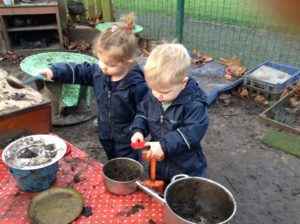
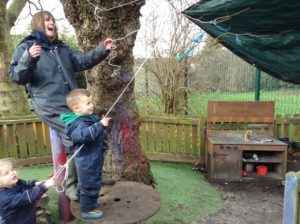
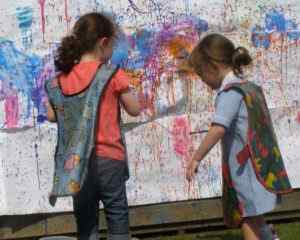
Rule of law: Understanding rules matter as cited in Personal Social and Emotional development
As part of the focus on managing feelings and behaviour:
- We ensure that children understand their own and others’ behaviour and its consequences, and learn to distinguish right from wrong as supported by our ‘Image of the child’ -’ I am exploring my emotions and learning about other people’.
- With the support of our ‘Supporting Positive Relationships and Behaviour’ policy and our photographic code, we ensure children are ‘seen as role models and good citizens and use opportunities to reinforce positive behaviour within school’.
- We negotiate rules and the codes of behaviour with the children, for example, in Class 2, children help to develop a ‘promise’ for the behaviour they would like to see happening in their environment. In Class 3, as the children mature they help to create three ‘promises’ where they consider their Nursery as a learning community and discuss and negotiate ideals of a safe and caring learning environment.
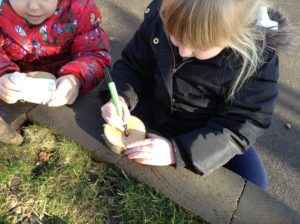
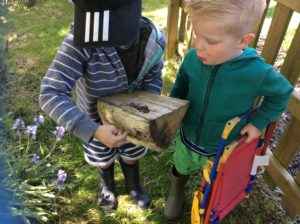
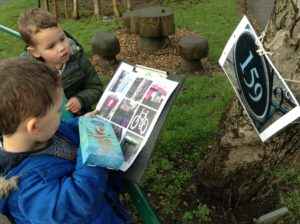
Individual liberty: freedom for all
As part of the focus on self-confidence and self-awareness and people and communities as cited in Personal Social and Emotional Development and Understanding the World: Children should develop a positive sense of themselves.
- We provide opportunities for children to develop their self-knowledge, self-esteem and increase their confidence in their own abilities through our ethos in valuing the Characteristics of Effective Learning – Playing and Exploring, Active Learning and Creating and Thinking Critically’.
- We support children to develop a positive sense of self through our ‘Image of the Child’ – ‘I feel secure because I believe I can’
- The children are encouraged to be individuals, challenge their learning, take risks and develop confidence in their own abilities, for example through exploring our outdoor space, mixing colours and making potions, testing their ideas and asking questions to find out more.
- We encourage children to envisage themselves as a community of learners and as a citizen of their local environment. We allow children to explore the language of feelings and responsibility, reflect on their differences and understand we are free to have different opinions through their Fascination groups.
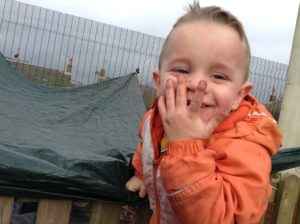
Mutual respect and tolerance
As part of the focus on People and Communities, Managing Feelings and Behaviour and Making Relationships as cited in Personal Social and Emotional Development and Understanding the World: We work to create an ethos of inclusivity and tolerance where views, faiths, cultures and races are valued and children are engaged with the wider community.
- Our planning and practice is geared to supporting children to acquire a tolerance and appreciation of and respect for their own and other cultures; know about similarities and differences between themselves and others and among families, faiths, communities, cultures and traditions and to share and discuss practices, celebrations and experiences.
- We encourage and explain the importance of tolerant behaviours such as sharing and respecting other’s opinions.
- We promote diverse attitudes and challenge stereotypes, for example, sharing stories that reflect and value the diversity of children’s experiences and providing resources and activities that challenge gender, cultural and racial stereotyping.
- We support the children to understand their role in being a citizen of their local community through providing valuable and relevant opportunities for children to make links with the people in the local environment who influence their lives.
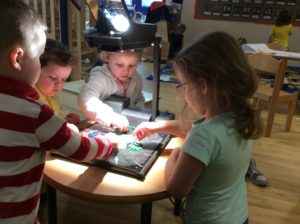
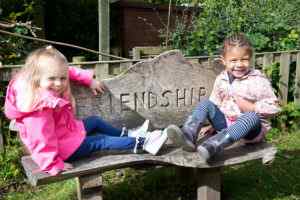
Tolerance of those with different Faiths and Beliefs
We aim to support the children to understand different faiths and beliefs through supporting community links and developing their knowledge of how they are part of a local community and the wider world. We provide relevant and developmentally appropriate opportunities to enhance children’s understanding of different faiths and beliefs through learning opportunities that are accessible to young children. We actively encourage parents/carers to participate and support us in creating local and world wide links to encourage the children to develop an understanding of the differing cultures, faiths and beliefs around them and support them in being not only tolerant but interested in others; exploring how the differ or are dissimilar to themselves.
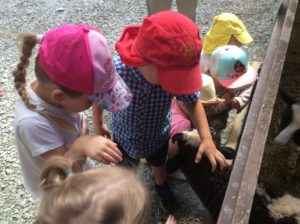
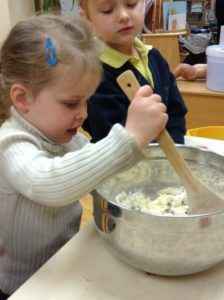
As a team we will:
- Consistently and actively promote tolerance of other faiths, cultures and races
- Challenge gender stereotypes, including routine segregation of girls and boys
- Work to engage children and families with the wider community
- Challenge behaviours (whether of staff, children or parents) that are not in line with the Fundamental British Values of Democracy, Rule of Law, Individual Liberty, Mutual Respect and Tolerance for those with different faiths, beliefs and lifestyle choices.






